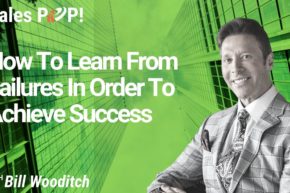In a recent episode host, John Golden engages in a thought-provoking discussion with Markus Neukom, a leadership coach known as the “authenticity alchemist.” The episode delves into the pervasive issue of imposter syndrome, particularly among high-achieving individuals, and its intricate relationship with authenticity. This blog post will break down the key insights and actionable advice shared during the episode, providing a comprehensive guide for listeners looking to overcome imposter syndrome and embrace their authentic selves.
Understanding Imposter Syndrome
What is Imposter Syndrome?
Imposter syndrome is a psychological pattern where individuals doubt their accomplishments and have a persistent fear of being exposed as a “fraud.” Despite the evident success, those experiencing imposter syndrome often attribute their achievements to luck or external factors rather than their abilities.
The Prevalence Among High Achievers
Markus Neukom highlights that imposter syndrome is particularly common among high achievers. He notes that 95% of his clients have experienced it, often without recognizing it. The higher one climbs in their career, the more pronounced this feeling becomes. This paradoxical phenomenon can lead to a cycle of anxiety and fear of being “found out,” which can hinder personal and professional growth.
The Deeper Issue: The Authenticity Struggle
Markus explains that imposter syndrome is not the root problem; rather, it is a symptom of a more profound issue he refers to as the “authenticity struggle.” This struggle arises when individuals fail to understand their true selves, leading to feelings of inadequacy and self-doubt. Many people, despite their successes, do not have a clear understanding of who they are, which can lead to a fear of stepping into new roles or opportunities.
The Authenticity Struggle
Defining Authenticity
Authenticity involves being true to oneself and aligning one’s actions with personal values and beliefs. It is a critical component of effective leadership and personal fulfillment. However, many professionals find it challenging to navigate this authenticity struggle, particularly in environments that prioritize technical skills over emotional intelligence.
The Impact on Leadership
Markus shares his insights on how leaders can transition from being technical experts to visionary leaders. He highlights the importance of developing interpersonal skills and emotional awareness, which are essential for fostering a positive workplace culture. By focusing on human connections rather than solely on technical prowess, leaders can inspire their teams and drive organizational success.
Building Authentic Confidence
Self-Discovery
A significant part of overcoming imposter syndrome involves self-discovery. Markus encourages individuals to reflect on their past successes and recognize the skills and strengths that contributed to those achievements. This practice can help build authentic confidence, allowing individuals to overcome feelings of inadequacy and embrace their true potential.
Practical Steps for Self-Discovery
- Reflect on Career Milestones: Take time to review your career journey and identify key achievements. Consider the skills and efforts that led to these successes.
- Reconstruct Your Narrative: Rewrite your personal and professional story, focusing on your strengths and contributions.
- Engage in Introspection: Set aside time for self-reflection, free from distractions. Simple actions, like going for a walk without a phone, can help you reconnect with yourself.
The Role of Mentorship
John and Markus also touch on the importance of mentorship and support systems in overcoming imposter syndrome. Having a network of trusted colleagues and mentors can provide valuable perspectives and encouragement, helping individuals navigate their challenges and celebrate their successes.
The Role of Failure in Growth
Embracing Failure
Markus points out that individuals with imposter syndrome often fear not just failing but also succeeding, as success may expose them to new challenges and expectations. He emphasizes that failure should be viewed as a learning opportunity rather than a setback.
Learning from Real-World Experiences
John shares a personal anecdote about a successful businessperson who learned more from their failures than from their academic achievements. This reinforces the idea that real-world experiences, including failures, are invaluable for personal and professional growth.
Managing High Performers
Understanding “A Players”
Markus shares his experiences working with “A players”—high-performing individuals who often exhibit diva-like tendencies. He likens managing these individuals to leading a choir, where the soloist must be tamed to harmonize with the group. It takes a unique skill set to manage such talent effectively.
Strategies for Engaging Top Performers
- Recognize Their Strengths: Understand the motivations and aspirations of high performers.
- Provide Growth Opportunities: Offer challenges and opportunities that align with their strengths and career goals.
- Foster Collaboration: Encourage a collaborative environment where high performers can contribute to the team’s success.
Creating Supportive Communities
The Value of Community
Towards the end of the episode, Markus discusses the value of community in overcoming imposter syndrome. He advocates for forming small groups of like-minded individuals who can support each other in their journeys. By sharing experiences and providing encouragement, individuals can break through the barriers of self-doubt and foster a sense of belonging.
Building a Support Network
- Join Professional Groups: Participate in industry-specific groups or networks.
- Form Peer Support Circles: Create small groups with colleagues or friends who share similar challenges and goals.
- Seek Out Mentors: Find mentors who can provide guidance and support.
Final Thoughts
This episode serves as a powerful reminder that imposter syndrome is a common experience among high achievers, but it doesn’t have to define one’s identity. By focusing on authenticity, self-discovery, and community support, individuals can overcome self-doubt and embrace their true potential. Markus Neukom’s insights provide valuable guidance for anyone looking to navigate the complexities of their professional and personal lives with confidence and authenticity.
Listeners are encouraged to reflect on their own experiences with imposter syndrome and consider how they can cultivate authenticity in their personal and professional lives. The conversation highlights the importance of recognizing one’s worth and the power of human connection in fostering a thriving workplace culture. This episode is a must-listen for anyone looking to navigate the complexities of self-identity and leadership in today’s fast-paced world.
Our Host
John is the Amazon bestselling author of Winning the Battle for Sales: Lessons on Closing Every Deal from the World’s Greatest Military Victories and Social Upheaval: How to Win at Social Selling. A globally acknowledged Sales & Marketing thought leader, speaker, and strategist, he has conducted over 1500 video interviews of thought leaders for Sales POP! online sales magazine & YouTube Channel and for audio podcast channels where Sales POP! is rated in the top 2% of most popular shows out of 3,320,580 podcasts globally, ranked by Listen Score. He is CSMO at Pipeliner CRM. In his spare time, John is an avid Martial Artist.








Comments